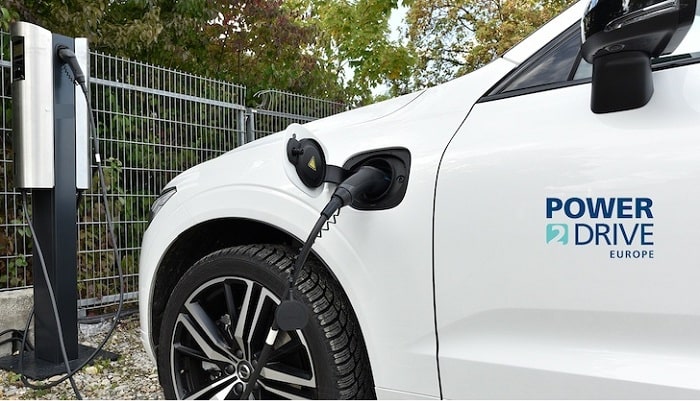Whilst alternatively fueled vehicles are gaining popularity in Germany, gasoline engine and diesel cars are losing ground. Newly registered vehicles over the past year show that for the first time, more than a quarter of new passenger cars run on electric motors as plug-in hybrids or purely electric vehicles. Charging infrastructure in Germany is also on the rise, not least due to the government incentive scheme. Top-notch speakers will share their thoughts on the trends shaping electromobility in Europe, North and South America in the webinar ‘Electromobility Market Trends 2022’. The webinar is organized by the international exhibition Power2Drive Europe, where the growing mobility industry will meet from May 11–13, 2022, in Munich.
Newly registered passenger cars with alternatively fueled engines came out on top in Germany in 2021: 325,449 plug-in hybrids (+62.3 percent compared to the previous year) achieved a share of 12.4 percent. 355,961 battery electric vehicles (BEVs) increased their share by as much as 83 percent to 13.6 percent. In total, electric vehicles (PHEVs and BEVs) thus have a share of 26 percent. Over the course of the past year, the share of all-electric vehicles (BEVs) in new passenger car registrations in Germany has steadily grown. In January 2021, for example, they accounted for 9.6 percent and in December 2021 for 21.3 percent. By contrast, conventional internal combustion engines continued to lose ground in the passenger car market: Gasoline engine cars made up a mere 37 percent (2021: 46.7 percent), and diesel just 20 percent (2021: 28.1 percent) of market share, according to the most recent statistics from the Federal Motor Transport Authority. Last year, a total of 2.62 million new vehicles were sold in Germany – 10 percent fewer than in 2020 (following a 20 percent decrease during the first year of the pandemic). One of the main reasons for this are still chip shortages at manufacturer level.
Charging infrastructure highly subsidized
E-mobility is being driven forward in Germany thanks to a premium for those who buy electric vehicles (environment bonus), tax reductions, the growing number of e-cars on offer, their boosted performance and range as well as the expansion of charging infrastructure. Charging infrastructure in Germany is growing, not least because of government subsidies. For instance, by the end of the year, 200,000 subsidized private charging points were already in operation through the “Charging Station for Electric Cars – Residential Buildings” program alone, according to the National Centre for Charging Infrastructure. In total, 800 million euros will go towards the installation of 900,000 private charging points as part of the program. Almost 40 percent of the subsidized charging points feed electricity into the charging station from their own photovoltaic installation, whilst almost a fifth use their own battery storage system. Furthermore, the government will provide around two billion euros for the “German network”, a nationwide fast charging infrastructure for medium and long-distance traffic. Up to 1,000 fast charging stations are to be installed, including on highways – the tender for this is already in progress.
Webinar provides information about trends in international markets
On January 25, 2022, the webinar ‘Electromobility Market Trends 2022’ will provide information about current trends in e-mobility on important international markets, supported by the Webasto Group. The international exhibition Power2Drive Europe has top-notch speakers lined up for the event: Philippe Vangeel, general secretary at AVERE, the European Association for Electromobility, will give an insight into trends for 2022 in Europe. Adalberto Maluf, president of the Brazilian Association for Electric Vehicles ABVE (Associação Brasileira do Veículo Elétrico), and Joel Levin, executive director of Plug In America, a nonprofit organization that promotes the use of plug-in vehicles, will speak respectively about trends in South America and North America. Click here for more information and for free registration to the webinar, powered by the Webasto Group.
Furthermore, the international exhibition Power2Drive Europe will provide information about charging solutions, electric vehicles and mobility services from May 11–13, 2022, at Messe München. Manufacturers, suppliers, installers, fleet and energy managers, distributors and start-ups will be able to get up to date and make valuable business contacts at the exhibition, the exhibition forum and the accompanying Power2Drive Conference.
Power2Drive Europe also reflects the intelligent integration of electromobility into a renewable energy system, as it takes place on the innovation platform The smarter E Europe in parallel with the energy exhibitions Intersolar Europe, ees Europe and EM-Power Europe. More than 50,000 visitors and 1,450 exhibitors from around the world are expected to attend. The event will focus on the possibilities of combining electricity, heat and transportation increasingly with renewable energy and through decentralization and digitalization.





































